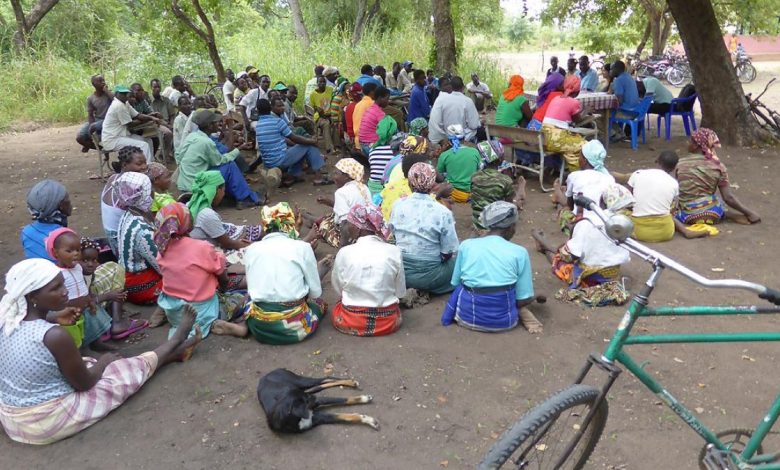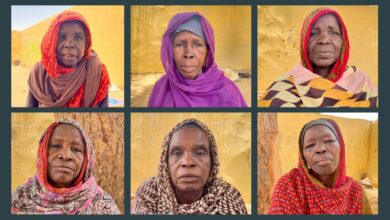Human Rights Respect Far From Desired Standards In Mozambique – Report

A considerable number of people in Mozambique believe that the promotion of Human Rights in the country is still far from the desired, a survey released on Wednesday by the country’s civil society reveals.
Titled, “Citizens’ Perception of Human Rights”, the survey promoted by the civil society, through the Universal Periodic Review Mechanism, involved 579 respondents in the provinces of Maputo, Inhambane, Sofala, Tete, Nampula and Cabo Delgado.
It showed that 80 per cent of the participants, mostly women, saying that they had general knowledge about human rights but not in a detailed way.
The participants cited the rights to life, health, education and family as most important, but female respondents described the rights to health and education as the most denied.
Only 13.7 per cent said that in Mozambique Human Rights were being respected.
Among the most violated aspects of human rights in Mozambique, the people
said the right to freedom of expression and political freedom were suppressed.
Recent episodes of journalist persecution have been reported as well as iolations of human rights during COVID-19 19 lockdown.
As a reason for the violation of rights, the people pointed to the deficient functioning of the organs of justice as the biggest cause, motivated by the feeling of impunity by authorities.
The survey cited the police as the “most offensive” state institution in terms of human rights abuse.
Supported by the United Nations Development Programme (UNDP), Norway, and other partners, the Citizens’ Perception of Human Rights in Mozambique report has been prepared in the past two years.
During the launch of the document in Maputo, several entities from civil society and the government participated
It focused on questions of law and the need for the engagement of all with a view to respecting the rights of the people.
Freedom of expression violated
Three months ago, a journalist of Rádio Comunitária de Palma in Cabo Delgado, Ibraimo Abu Mbaruco, went missing.
Media Institute for Southern Africa (MISA), Mozambique chapter, found that Mbaruco left home to work on April 7. He was probably abducted on his way home between 6p.m and 7p.m.
Moments earlier, Mbaruco sent a short message to one of his co-workers, informing that “he was surrounded by military forces.”
From that moment, he no longer answered calls, although his phone was still giving a signal that it was on.
“We’ve been calling him since the day he disappeared, but he’s not answering his calls. The family can’t contact him either,” confirmed one of the journalist’s friends.
The friend said that immediately after his disappearance his colleagues and relatives contacted the District Administrator, the District Police Command of the Republic of Mozambique and the Permanent District Secretary.
A brief investigation by MISA Mozambique found that Mabaruco was no longer at Palma headquarters.
MISA-Mozambique condemned the occurrence and called on the government to use all means to allow the journalist to regain his freedom.
Acts of violence and arbitrary arrests of journalists are contrary to all the principles of a democracy, human rights and the constitution of Mozambique with regard to freedom of expression and the press.
“It is extremely worrying that there is still no information. We continue to wait and reiterate our appeal for him to be located,” Executive Director of the press freedom watchdog Ernesto Nhanale told the press last month.
Several international organisations, including Amnesty International, Human Rights Watch and the European Union, have expressed concern over the journalist’s disappearance and asked the authorities to clarify the case.
Mozambican authorities have, however, denied for four months that the journalist was detained by them, adding that the case was still under investigation.
MISA has written to the Presidency of the Republic of Mozambique, calling on head of state Filipe Nyusi to “activate mechanisms” and restore the journalist to freedom.
Cabo Delgado, where 30 billion dollars gas megaprojects are in progress, has been grappling with attacks by armed groups classified as terrorists.
Attacks in the region have killed at least 1,100 people in the last two and a half years and caused a humanitarian crisis affecting 211,000 people.
In 2019, local journalists Amade Abubacar and Germano Adriano, who were covering the insurrection in the region, were detained by the authorities for four months on charges of violating state secrets and inciting disorder, in a case contested by the United Nations and other organisations.
Two senior journalists with the independent paper, “Canal de Moçambique”, namely the owner Fernando Veloso and the editor Matias Guente, appeared before the court this week on charges of violating state secrets.
The Mozambican Public Prosecutor’s Office is charging both with violating state secrets for publishing an alleged confidential agreement on security in the construction of the gas projects in Cabo Delgado.
The case stems from the publication, on March 11, of an alleged agreement signed between the consortia that will explore natural gas in the Rovuma Basin and the Mozambican government on the security of the multinationals’ operations.
The article claimed that the money paid for security was being swindled by former senior goverment officials.
Also there are lots cases of other human rights abuses, specially during the COVID-19 lockdown, such as the imprisonment of citizens, including children, beating up people for not putting on face masks and arbitrary killings
Support Our Journalism
There are millions of ordinary people affected by conflict in Africa whose stories are missing in the mainstream media. HumAngle is determined to tell those challenging and under-reported stories, hoping that the people impacted by these conflicts will find the safety and security they deserve.
To ensure that we continue to provide public service coverage, we have a small favour to ask you. We want you to be part of our journalistic endeavour by contributing a token to us.
Your donation will further promote a robust, free, and independent media.
Donate Here




